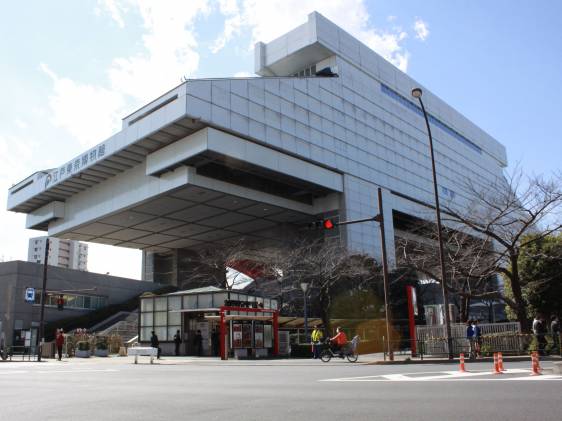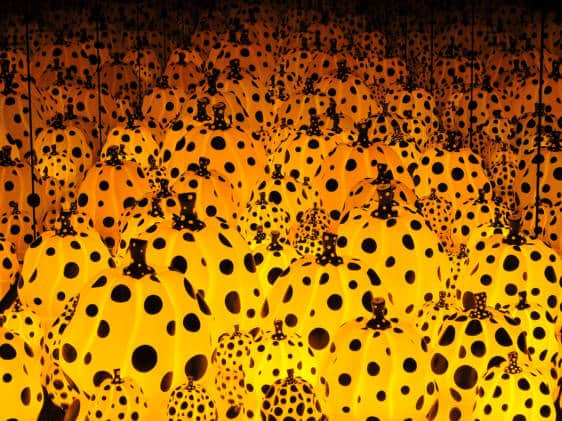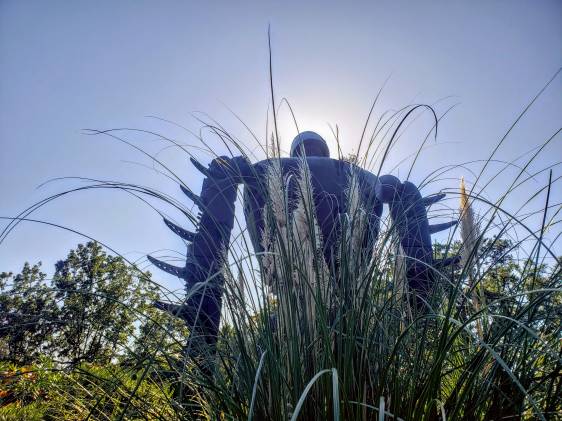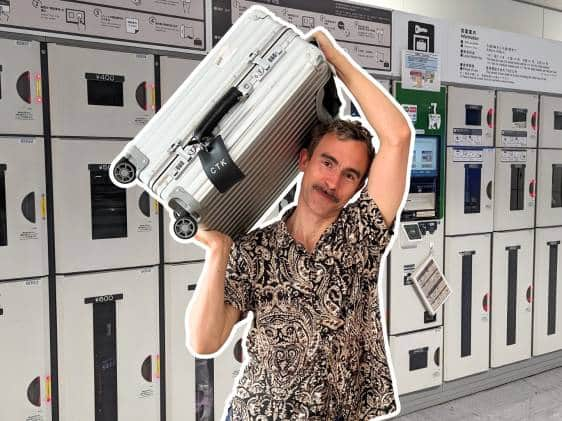Regardless of your interests, you can bet that Tokyo has a museum that will tickle your fancy. For those who want to be in the know, let us be your guide to the best museums in Tokyo. Afterall, whether you’re a visitor or a local, Tokyo museums shouldn’t be an afterthought or an activity reserved solely for rainy days.
Tokyo has a wealth of museums that give glimpses into Japan’s rich history and explore artistic movements from both at home and abroad. And that’s without mentioning the museums dedicated to cutting-edge technology, celebrating Japan’s pop culture, or other, even more unusual things. From art to history, to science and pop culture, here’s our ultimate round up of the best Tokyo museums.
Tokyo museums: The basics
So, before we dive in let’s cover some basics about museums in Tokyo. First things first, when are museums in Tokyo open? Well, for the most part museums in Tokyo open around 9 or 10 a.m. and close around 5 or 6 p.m. Except for special events, museums in Tokyo aren’t usually open late. Most museums also have one or two regular closing days — usually Monday or Tuesday. Some open on national holidays, but others don’t.

When it comes to language support, it’s common for big museums to have English information available. After English, Korean and Chinese language support are the next most common. Some museums have foreign language audio guides or audio guide apps — but you often need to bring your own headphones.
Finally, etiquette. Many museums provide lockers for storing backpacks and bulky items — use them. Sure, it might cost a few hundred yen, but it saves you bumping and jostling other guests. The lockers, like other luggage storage in Tokyo, are very secure. Also, make sure to follow each museum’s rules. There is always ample signage showing if you can/can’t take photos and touch displays, and even signs showing the route.
Buying museum tickets in Tokyo
There two main ways to buy museum tickets in Tokyo — in person or online. However, not all museums offer both, so it pays to check in advance.
When you buy tickets in person, you’ll get them either from a manned ticket counter or a ticket vending machine. At manned ticket counters, you buy the ticket directly from a staff member — who may or may not speak English. Most ticket counters will accept cash, and some will accept credit cards or e-money as well. Ticket vending machines sometimes have buttons to change the display langauge, but often only take cash.

Buying tickets online is a whole other affair, because individual museums have different systems. Broadly speaking, you either buy a ticket online through a museum’s official website, or through a third-party provider. Then, you’ll either receive an e-ticket or a ticket voucher that you’ll need to redeem at a ticket counter or vending machine for a physical ticket. In most cases, you can pay for your online ticket with a credit card or e-money, but in some cases you’ll need to pay at a convenience store. Again, all this depends a lot on individual museums.
Many museums offer small discounts if you buy your ticket online. And more importantly, some museums are so popular that their tickets have to be bought online months in advance — we’re looking at you, Ghibli Museum.
Discounts and passes for Tokyo museums
So, what about saving money? Well, there are a few ways you can save money on museum tickets in Tokyo. The first way is to hunt for discounts. There are a whole bunch of different discounts floating around that vary between museums, but some of the most common ones are:
- Online discounts: Some museums offer discounts if you buy tickets online. The savings are usually only a few hundred yen
- Student discounts: For students at high schools, vocational colleges, or universities. You will always be asked to show your student ID*. Student discounts range from a few hundred yen to 50% off
- Child or senior discounts: There are often discounted prices for children (under 12) and seniors (over 60). You need to show ID or a seniors’ card*. These discounts are usually half price. Sometimes, especially for young children (under 3), entry can be free
- Discounts for those with disabilities: These discounts are normally for one person with a disability and one accompanying carer. Often, you will need to show a disability certificate*. This discount usually gives free entry to both the person with a disability and one carer
- Group discounts: For big groups — we’re talking 10, 15, or 20+ people. The discount varies, but might work out to a few hundred yen per person
- Partner organization/package discounts: Some museums team up with other nearby attractions to offer discounts. Common discounts are a few hundred yen off if you show your ticket from a participating attraction, or combo tickets for several attractions
*Foreign documents might not be accepted.
There are also several passes that give free or discounted entry to participating museums. These include the Grutto Pass, the Tokyo Pass, and the Ticket of Museums around Tokyo Station.
Best history museums in Tokyo
History buffs have no shortage of Tokyo museums to choose from. If you’re into samurai, ninja, or anything to do with Japanese history there’s something for you. Here are just a few of our favorite Tokyo history museums.
Tokyo National Museum
¥1,000 for adultsUeno
Logically, Japan’s largest museum — the Tokyo National Museum — has an extensive range of art and artefacts from different periods of Japanese history. They have both a permanent collection and special exhibitions, which altogether will take up a huge chunk of your day — not that it’s a bad thing!
Children: Free
Students: ¥500
Edo-Tokyo Open Air Architectural Museum
¥400 for adultsKoganei

At the Edo-Tokyo Open Air Architectural Museum, you can quite literally step back in time. The museum features buildings from throughout Japan’s history that have been carefully relocated and preserved. Plus, the buildings are full of everyday objects from different historical periods too. It’s a great place for exploring, but given the outdoor nature of the museum we recommend saving it for days when the weather is nice.
Children: ¥200
Students: ¥320
Seniors: ¥200
Edo Toyko Museum (Temporarily closed)
N/ARyogoku
As its name suggests, the Edo-Tokyo Museum is all about Japan’s Edo/Tokugawa era (1603-1868). Unfortunately for people visiting Japan right now, this fantastic museum is currently under rennovation and isn’t set to reopen until 2025. We can’t wait to see what new and exciting things await us when it reopens.
Children: ¥300
Students: ¥480
Seniors: ¥300
Best art galleries and museums in Tokyo
Tokyo’s art scene is nothing to sneeze at. Featuring everything from photography to painting and sculpture, there are a huge range of museums and art galleries of all sizes you can visit.
Check out our full guide to Tokyo’s best art museums for more ideas.
Yayoi Kusama Museum
¥1,100 for adultsWaseda

Even if you don’t know Yayoi Kusama, you probably know her polka-dot pumpkins. Logically, the Yayoi Kusama Museum is dedicated solely to her work, so be prepared for bright, bold colors, and striking patterns. But, if you do want to visit, make sure to buy your tickets online in advance, because you can’t buy them on the day.
Children: ¥600
Sumida Hokusai Museum
¥400Sumida
The Sumida Hokusai Museum focuses on a different icon of the Japanese art world — Hokusai. Don’t know him? Well, we promise you’ll recognize his works, especially the 36 Views of Mount Fuji. The museum is full of his works, and also has displays explaining different traditional Japanese art techniques which we found especially interesting.
Students: ¥300
Middle School students: Free
Elementary School students: Free
Seniors: Free
Seniors: ¥300
Mori Art Museum
¥2,000 for adultsRoppongi
The Mori Art Museum always has a schedule that is jam-packed with exhibitions by some of the most exciting artists on the contemporary (and old!) art scene. While the entry fee is on the pricier end of things, the exhibition space is quite large and you definitely feel like you get your money’s worth.
Children: ¥800
Students: ¥1,400
Seniors: ¥1,700
Best science and technology museums in Tokyo
Ah, yes, how could we not mention Tokyo’s science and technology museums? With exhibitions on the latest technology, and plenty of interactive elements, these are our favorite science and technology museums in Tokyo.
National Museum of Nature and Science
¥630Ueno
Buy your tickets here

The National Museum of Nature and Science is fantastic for animal lovers and little children — and is even better if that person is one and the same. With exhibitions featuring native Japanese flora and fauna, dinosaurs, and yes, even space exploration too, there’s plenty to keep you busy. There are lots of hands on activities, and support in multiple languages.
National Museum of Emerging Science and Innovation (aka Miraikan)
¥620Odaiba
Learn more about our world and outer space by visiting the National Museum of Emerging Science and Innovation. Created by the national Science and Technology Agency, Miraikan’s permanent exhibitions are divided into three zones, each of which demonstrates how human beings interact with the built, information, and natural environments. Be sure to walk through the full-scale model of the Shinkai 6500, a manned research submersible which is used to explore the ocean at depths of 200 meters and beyond.
Children: ¥210
Best anime and pop culture museums in Tokyo
Another famous Japanese export, you bet that there are lots of anime and pop culture museums in Tokyo.
Ghibli Museum
¥1,000 for adultsMitaka

The Ghibli Museum is your chance to enter the fantastical world of Miyazaki’s films.
Immerse yourself in Miyazaki’s artistic process by entering his workshop, aptly called Where a Film Is Born. Here you will find numerous stills and storyboards from his films, including Princess Mononoke and Ponyo. Become mesmerized by the Totoro zoetrope on the ground floor and wind your way up to the rooftop garden via the internal iron staircase. Once on top of the roof, get a picture of yourself with the massive Robot Soldier and the command cube, both from Laputa Castle in the Sky. There is also a life-size replica of the Cat Bus from My Neighbor Totoro, which children can enjoy!
See our full guide to the Ghibli Museum for all the planning tips and tricks you need to know.
Children: ¥100
High School students: ¥700
Elementary School students: ¥400
Fujiko F. Fujio Museum
¥1,000 for adultsKawasaki
If you’re a fan of Doraemon, then you can’t miss the Fujiko F. Fujio Museum. Sure, it’s a short trek away from Tokyo, but we promise it’s worth it. For older fans, there are original drawings by Fujiko F. Fujio, while for the little ones there’s a rooftop playground. Plus, there’s a museum café and plenty of photo ops too.
Children: ¥500
High School students: ¥700
Best interactive and sensory museums in Tokyo
Get ready to get hands on with these fun interactive and sensory museums in Tokyo.
teamLab Borderless
¥3,800 to ¥4,800 for adultsAzabudai Hills
Buy your tickets here
The internet sensation that is teamLab Borderless reopened its doors in 2024. Part digital art museum, part sensory experience, Borderless features artworks made of light projections. The artworks move around the space and interact with one another, and even better — with visitors too. It’s perfect for people who want insta-worthy photos, and kids love it too.
See our full guide to teamLab Borderless for everything you need to know before you go.
Children: ¥1,500
High School students: ¥2,800
Middle School students: ¥2,800
Small Worlds Tokyo
¥620 for adultsAriake
Buy your tickets here

Step into a world of minatures at Small Worlds Tokyo. Exhibitions at Small Worlds are full of tiny scale models and figurines that create complex and detailed dioramas. Plus, there are interactive elements that kids — and kids-at-heart — will loving pressing to see different parts of the scene move and light up.
Children: ¥1,500
High School students: ¥1,900
Free museums in Tokyo

So, at this point you might be wondering if there are any free museums in Tokyo? Happily, we can tell you that the answer is yes! While most of the big museums in Tokyo do charge an entry fee, there are lots of smaller but just as impressive museums that don’t. For example, Meguro Parasitological Museum offers an insight into the world of parasites, while Intermediatheque is a natural history museum full of scientific specimens and cultural displays.
Free admission days
If you like free things, you’ll love this — lots of museums in Tokyo have free admission days. The most common one is International Museum Day (May 18), when even big museums like the Tokyo National Museum and the National Museum of Nature and Science allow everyone in for free. The Tokyo National Museum and others also give free entry to senior citizens (over 65) on Respect for the Aged Day, which is the third Monday of September. Just know that these free admission days aren’t exactly secrets, the museums will be very crowded on these days.
Frequently asked questions
Where can I see Takashi Murakami art in Tokyo?
Unfortunately, no museums in Tokyo (or Japan) have permanenent Takashi Murakami exhibitions. But, in the past his work has been shown at the Mori Art Museum.
What is the largest museum in Tokyo?
The largest museum in Tokyo is the Tokyo National Museum.
Do museums in Tokyo have informaton in English?
Yes, most of Tokyo’s bigger museums have either signage or audioguides available in English. Smaller, local museums are less likely to have English language support.
Can I take my kids to museums in Tokyo?
Definitely! Lots of museums in Tokyo are kid friendly, and most have discounted entry for children. But, some museums are better suited for kids than others, so do some research ahead of time.
Can I take photos inside Tokyo museums?
This depends on the museum. Some will allow photos for private use, but many don’t allow filming. Look for signage or ask a staff member if you’re not sure.
hile we do our best to ensure it’s correct, information is subject to change. Post first published in March 2015. Last updated: March 2024.














































